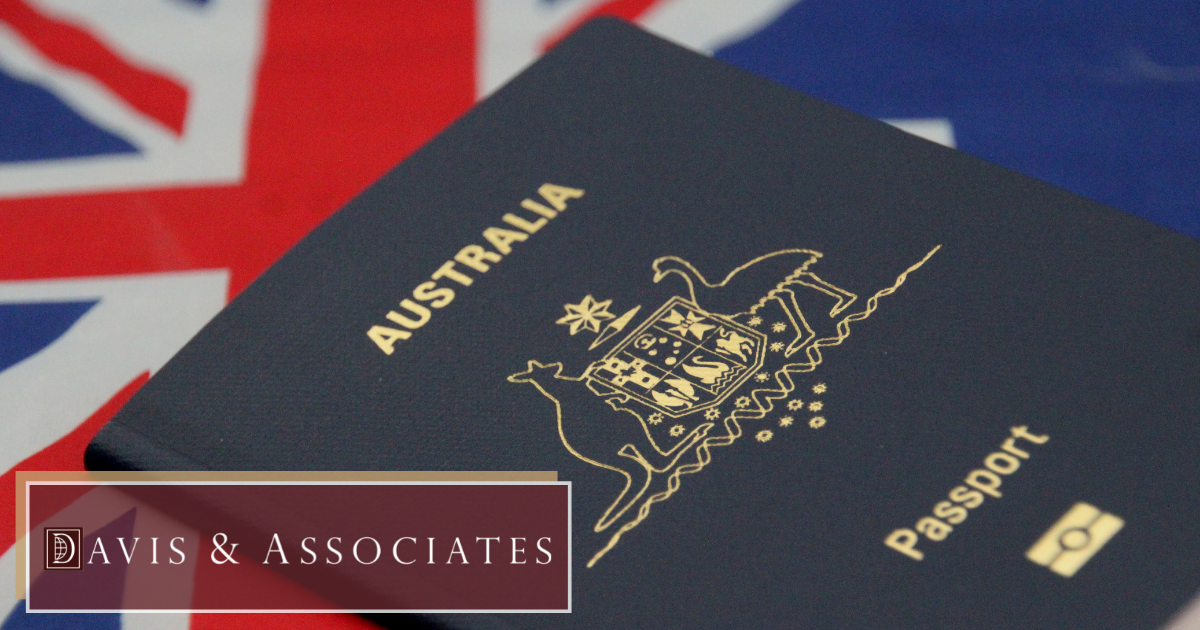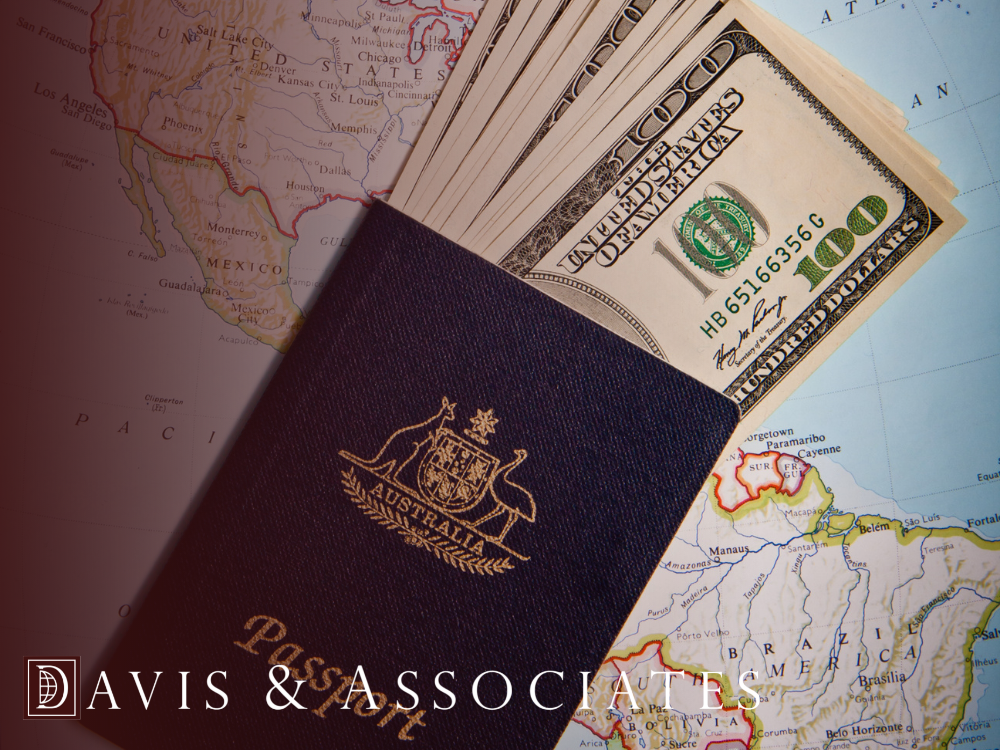E-3 Visas for Specialty Occupation Workers From Australia
As an Australian who wants to live and work in the United States, you may be interested in obtaining an E-3 visa.
These visas are available to Australians who can perform specialty jobs here in the U.S. and meet all eligibility criteria.
If you believe you qualify, you may want to talk to a Texas business immigration attorney who can help you fill out and file the appropriate paperwork with the U.S. government.
What is an E-3 Visa?

An E-3 visa enables Australian citizens to come to the United States to work in a specialty occupation.
Not all jobs qualify as specialty occupations; in fact, only jobs that require theoretical and practical application of highly specialized knowledge, as well as a bachelor’s or higher degree in the specialty, count for these visas.
In plain English, that means you must be a specialist in a field that isn’t extremely common, and you must possess knowledge that’s required to do the job – knowledge that not everyone has.
Is an E-3 Visa a Form of Business Immigration?
An E-3 visa is a form of business immigration. In fact, you must have a job offer in the United States before you can even apply for this type of visa. You can’t apply for the visa and then start applying for jobs; a U.S. company must have offered you a job by the time you apply.
Who Qualifies for an E-3 Visa?
 In order to qualify for an E-3 visa, you must:
In order to qualify for an E-3 visa, you must:
- Be an Australian national
- Have a job offer in the United States, and the job offer must come from a qualifying employer that will sponsor your application (and that has a Labor Condition Application)
- Have the necessary academic or other credentials to perform the job you intend to take
- Be prepared to fill a position that qualifies as a specialty occupation.
An E-3 visa is only available to Australian nationals. That means you must be an Australian citizen in order to apply for this type of visa. There are other, similar visas available for people from other countries.
Specialty Occupation Examples
Several jobs count as specialty occupations for an E-3 visa, including:
- Accountants and other financial professionals
- Architects
- Artists, product designers, illustrators and other creatives
- Attorneys and law-related specialists
- Business managers
- Clergy and other religious workers
- Data and computer scientists
- Education professionals
- Engineers
- Mathematicians
- Medical and health professionals
- Musical artists
- Researchers
- Scientists
- Social and welfare workers
- Some sales occupations
- Veterinarians
- Writers and editors
There are a number of other specialty occupations, as well. If you’re not sure whether a job counts as a specialty occupation for immigration purposes, you should contact an immigration attorney to discuss your situation.
How Long Can You Remain in the U.S. on an E-3 Visa?
Your initial period of stay in the United States on an E-3 visa is 2 years. You can file for extensions, as well, in 2-year increments. There’s no maximum number of extensions, and in some cases, you can become a green card holder (and eventually a naturalized U.S. citizen) if you come to the U.S. on an E-3 visa.
Can You Get a Green Card Under an E-3 Visa?
In certain circumstances, you can apply for a green card – that is, lawful permanent residency – with an E-3 visa. Your U.S. employer can sponsor you for residency, or a U.S. citizen or lawful permanent resident can sponsor you (provided you share family ties with that person). You can also apply for the diversity lottery to try to obtain a green card in the United States.
The catch is (except with the diversity lottery) that you must come to the United States intending to remain a nonimmigrant. That means you can’t come to the U.S. on an E-3 visa with the intention of becoming a U.S. green card holder or naturalized citizen. Your intent must change after your arrival in the U.S. For example, you can come to the U.S. with the sole purpose of working under your E-3 visa; if your circumstances change, such as you meet someone and decide to get married, or you love your job and the U.S. so much you decide you’d like to stay, you can then apply to adjust your status. You’ll be responsible for proving to U.S. Citizenship and Immigration Services that you entered the U.S. with nonimmigrant intent.
However, applying for the diversity lottery is different. You can apply for the diversity lottery after your arrival in the U.S. without USCIS believing that you entered the U.S. with immigrant intent. That’s because when you enter the diversity lottery, you aren’t applying for a green card or citizenship; you’re just entering for a chance to apply at some point in the future.
Can You Bring Your Family to the United States if You Have an E-3 Visa?
Your immediate family members (your spouse and unmarried children under the age of 21) can typically come with you if you’re in the United States on an E-3 visa. Although your spouse is permitted to work (and they don’t have to file for employment authorization, though they can), your children are not allowed to work. Your children are permitted to attend school.
What if You Switch Jobs While You’re in the U.S.?
It is possible to change employers while you’re in the United States on an E-3 visa. However, your new employer must get a certified Labor Condition Application for the position, as well as file a Form I-129 petition.
How to Apply for an E-3 Visa From Australia
If you want to apply for an E-3 visa, you have the right to work with an immigration attorney who can help you. Many people choose to work with a lawyer for immigration; the process can be long and complicated, and a single error on a form can stop the process and USCIS may ask you to resubmit your packet.
You can’t apply for an E-3 visa until you have a job offer from a qualifying U.S. employer. Applying for an E-3 visa requires you (or your attorney) to:
- Ensure your prospective employer has a Labor Condition Application filed with the U.S. Department of Labor.
- Schedule a visa appointment through the U.S. Consulate. The U.S. Consulates that review visa applications in Australia are in Perth, Sydney and Melbourne.
- Attend a visa interview. Any dependent family members over the age of 14 who will come with you to the United States must also attend visa interviews. (In some rare cases, children under the age of 14 may also have to attend.)
- Receive your decision from the consular officer at your interview. In some cases, you won’t receive approval on the spot; that can happen when you haven’t provided enough supporting documentation.
Do You Need to Talk to an Attorney About Getting an E-3 Visa?
If you’re an Australian national who wants to come to the United States to work in a specialty occupation, we can help you. Call our office or contact us online to schedule your free consultation with an experienced, knowledgeable professional now.
